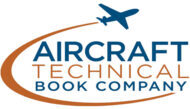Most Overlooked Careers in Aviation
According to ZipRecruiter, the most popular jobs in the aviation industry include aerospace engineer, pilot, and avionics technician.
Jobs in Aviation
There are numerous other roles to fill in the aircraft industry, and not just the ones you see taking tickets or helping you understand the in-flight safety procedures. Besides baggage claim and airport security, there are some behind-the-scenes jobs to consider as well.
Aircraft Mechanic
Airplanes are sophisticated machines that require a lot of moving parts. Aircraft follow a strict maintenance schedule to ensure that the aircraft’s mechanical, electrical, and computer-operated systems are functioning properly.
Being an aircraft mechanic offers a hands-on career in aviation, and it does require formal schooling.
Training to be an Aircraft Mechanic
There are a number of opportunities for earning an aviation maintenance certification. The Federal Aviation Administration requires one of two certificate ratings: The Airframe (A) rating (750 hours of training), or the Powerplant (P) rating (750 hours of training). You are also welcome to certify for both, expanding your career options with the A&P certificate (1,900 hours of training).
Other requirements for becoming an aviation mechanic are as follows:
- You must be at least 18 years of age
- You must be able to read, write, and speak English
- You must have at least 18 months of experience working in aircraft maintenance
- You must be graduated from an FAA-approved institution for Aviation Maintenance Technicians (AMTS) or
- You must have on-the-job training (OJT) in either military or civilian aircraft service
The specific work you do will depend on the type of certificate you earn, and the industry you enter after completion. Germany, aircraft mechanics are responsible for:
- Diagnosing mechanical or electrical problems in the aircraft
- Replacing and repairing components of the aircraft
- Inspecting the work of others
- Recording maintenance records in compliance with scheduled line checks
Since airplanes need to fly on almost non-stop schedules, working as an aircraft mechanic may mean having regular shifts at night or on weekends.
With aircraft mechanic training, you can find work in fields such as commercial airlines, aerospace parts manufacturing, or scenic transportation industries. Boeing’s outlook for technicians in 2021 and beyond shows a need for hundreds of thousands of qualified workers around the world.
Aircraft Painter
Have you ever wondered who paints aircraft? It’s a position that doesn’t require a degree, but it does require certification. Believe it or not, training in automotive painting usually translates to painting airplanes.
Aircraft painting requires skill since the paint has to withstand harsh weather conditions as planes navigate the globe. An aircraft painter needs to be familiar with prepping and priming metal for paint, and how best to apply it so as not to negatively affect the plane’s functionality.
And if you think painting a room is exhausting, imagine painting an airplane! This is a physically demanding job, whether it’s just touch-ups or a full-body paint job. Thankfully, though, painting a plane usually happens during daylight hours, so you can avoid working nights and weekends.
Air Traffic Controller
You can probably imagine the necessary training an air traffic controller must obtain before being tasked with ensuring planes are taking off and landing safely. This FAA-regulated job does have a number of strict requirements:
- You must be a United States citizen at least 30 years of age
- You must pass medical and security exams
- You must speak and understand English
- You must have related experience prior to employment: three years of work, a Bachelor’s degree, or post-graduate education equalling three years
- You must be willing to work day, night, weekend, and/or holiday shifts
- You must be open to potential relocation
The FAA also has hiring windows during which applications are accepted. If you miss the window, you’ll have to wait until the next scheduled opening. Thankfully, though, all the regulations have their benefits. Air traffic controllers can continue to receive on-the-job training that allows them to advance in their careers, and earn a higher salary.
Charter Broker
Do you think the people who have the money to fly chartered planes are doing the scheduling themselves? Probably not. For chartering private flights, most passengers turn to a charter broker. This is an individual or business that works as the middle man for passengers and licensed charter operators.
While charter companies are licensed and regulated by the FAA, charter brokers are not. They are primarily governed by state and federal agencies. Due to the changing nature of the job, an air charter broker benefits from having the following:
- Aviation experience (pilot, mechanic)
- Sales skills
- Marketing experience
There are formal schools for becoming a charter broker, providing education on the aviation industry, whether or not a specific charter request is legal, and how to properly negotiate contracts.
Enter one of these overlooked career fields as a jumpstart to other opportunities or commit to one for the long haul. You’ll likely find an ever-changing work landscape with the potential to advance your skills and become a valuable member of a team.
